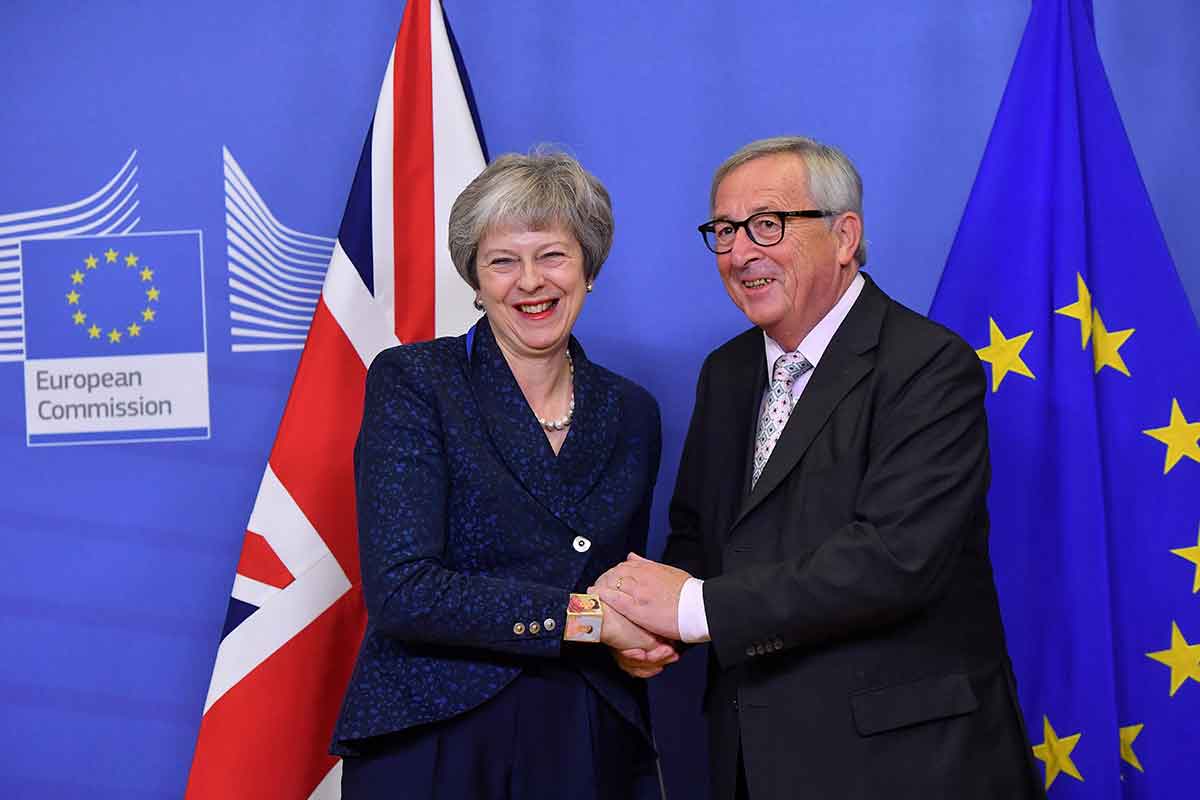Theresa May struck a deal to revise the terms of the United Kingdom’s (UK) divorce from the European Union (EU) but it’s unclear whether she’s done enough to win Parliament’s support.
After a chaotic day of changing plans in London, the prime minister made a last-minute decision to fly to Strasbourg, France, for late talks with European Commission President Jean-Claude Juncker.
More than two hours later – at 11:40 p.m. – the weary leaders sat down for a joint news conference to announce changes they both hope will now put an end to the tortuous negotiations that have defined the UK’s exit from the 28-country bloc. It remains to be seen if the new wording will convince her country’s lawmakers to sign off on the plan in a crunch vote Tuesday night.
“The choice is clear: it is this deal, or Brexit may not happen at all,” Juncker said. “Let’s bring the UK’s withdrawal to an orderly end. We owe it to history.”
When it was her turn, May appealed to Parliament – where her own Conservative Party is bitterly divided. “Now is the time to come together, to back this improved Brexit deal, and to deliver on the instruction of the British people,” she said.
29 March exit
With just 17 days left until the UK’s scheduled departure date, talks have been stuck on the same issue that has blocked progress for the past year: the backup plan intended to ensure there’s never any need for customs checks at the land border between Ireland and the UK.
Pro-Brexit politicians in May’s Tory party insist that the plan – known as the backstop – threatens to trap the UK inside the EU’s trade regime forever, because it would be impossible for Britain to leave.
The backstop effectively keeps Britain in the EU’s customs union – and therefore unable to strike free trade deals with other countries around the world, ruining a key prize for staunch Brexit supporters.
After Parliament rejected the deal in a defeat of historic proportions in January, May promised to seek changes to address these concerns.
Tense negotiations
Talks have been ill-tempered and optimism faded over the weekend. First thing on Monday, May’s officials said negotiations were “deadlocked” as the EU continued to refuse to shift course.
The government was even weighing up whether to scrap Tuesday’s planned vote on the basis that no significant changes had been secured. But at 5.15 p.m. May set off to Strasbourg to nail down the detail of an agreement that her officials had been working on in strict secrecy.
At its heart lies three new documents intended to provide additional legal guarantees that the UK can’t be trapped indefinitely inside the backstop arrangement. The status of these documents will be scrutinised intensively during Tuesday’s debate. The papers include a “unilateral declaration” setting out how the UK believes it can escape the backstop.
May’s Attorney General Geoffrey Cox is expected to set out his formal legal opinion on the changes on Tuesday. Even if he changes his legal advice and endorses the new deal, May still has a huge task ahead to persuade enough members of her own Conservative Party to support her plan in Tuesday night’s vote. One in three of May’s Tories rebelled against her orders and voted down her deal in January.
Steve Baker, a pro-Brexit member of May’s Conservative Party, said the new agreement seems to fall “short” of the plan he wanted to see. A panel of euro-sceptic politicians will examine May’s latest blueprint in detail, he said.
If Parliament rejects the deal on Tuesday, May has promised to give the House of Commons a vote on whether to leave the EU without an agreement on Wednesday. If members of Parliament choose to veto a no-deal Brexit, they will then get a vote on whether to delay the UK’s departure from the bloc. - Bloomberg
